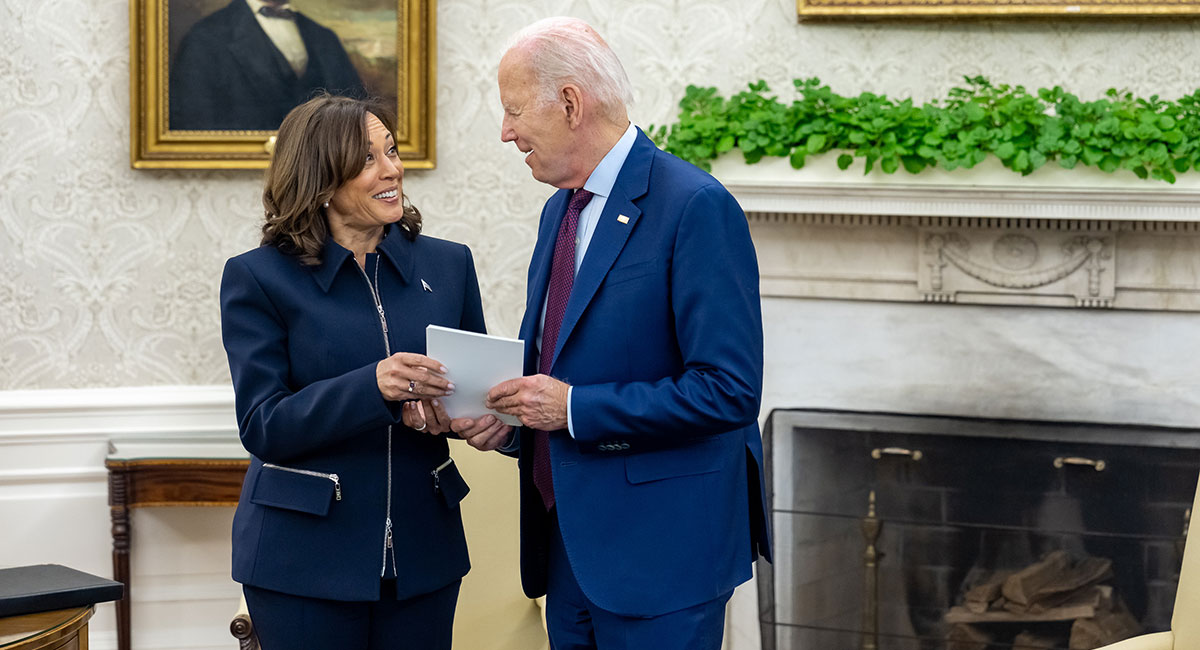Recent data on the inflation rate, GDP growth, and jobs from the U.S. Bureau of Labor Statistics have given the Biden administration reason to brag about the economy. One ardently hopes this is purely political grandstanding rather than a real assessment of where things stand. If not, it means the administration doesn’t understand the true state of the American economy—and, more importantly, the fact that it’s been declining now for decades and urgently needs to be overhauled.
To begin with, the Consumer Price Index figure showing the year-over-year inflation rate declining to 3% was greatly influenced by a 16% drop in energy prices. A more realistic picture of inflation, the so-called “trimmed-mean CPI,” which removes high and low outliers, like the energy price drop, shows inflation still running at 5%. This is on top of the 4.7% increase that hit U.S. consumers in 2021 and the 8% price spike in 2022.
If we continue down this path, it will mean a nearly 20% decline in purchasing power in just three years (and that assumes the prices of oil and other commodities will stay low, which, given the ongoing war in Europe and the fundamentals of supply and demand, seems unlikely).
President Biden is understandably elated at the job figures. His administration keeps bragging that it has “created” some 13.4 million jobs since he took office. The truth told by the Bureau of Labor Statistics, however, is that only slightly more than 2 million more people are employed today than on the eve of the pandemic, meaning that more than 11 million of the 13.4 million weren’t “created,” but simply came back after the pandemic shutdowns were ended.
Real average hourly earnings, meanwhile, have declined since March 2020, when the pandemic closures began.
The economic decline illustrated by these figures began before the Biden administration took office, but the administration has compounded them.
According to the U.S. Census Bureau, during the past 35 years—since 1987—the real median family income has grown at one-third the rate of the previous three decades. The combination of overregulation, government spending, monetary suppression by the Fed (which started with former Fed Chairman Alan Greenspan in 1987), and debt has made the U.S. economy much less productive than it was—and should be.
Both parties share responsibility in this. Between 1964 and 2000, productivity grew 2.2% per year on average, compared to 1.78% since then.
No economy can truly prosper with a declining level of productivity. Among the most important factors behind this grim reality is the declining level of private domestic investment, which under the current administration has increased by just one-half of 1% (0.53%) per year, about one-fourth the rate of growth between 2016 and the beginning of the Biden period (and that was already low by the standards of previous decades).
The amount of debt that has accumulated in recent years is staggering. Household debt is nearing $18 trillion, almost one-third higher than on the eve of the Great Recession of 2007-2008. Government debt now amounts to $32 trillion, a figure that will be dwarfed by the $50 trillion the government will likely owe well before this decade is over.
Although millions of Americans are suffering the consequences of both inflation and the high interest rates being employed to curb it (particularly in the real estate market), the blow has been temporarily cushioned by the colossal amount of cash Washington shoveled out in the wake of the pandemic.
According to Fed data, between the end of 2019 and the beginning of 2021, total cash balances rose by $5 trillion, a figure that easily surpasses the total size of the German economy. Although some of it has been spent, there is still a significant amount left, which means that, even with inflation and everything else that is going on, Main Street has not yet suffered the full consequences of what is happening to the economy—or the consequences of Washington’s profligacy in the wake of the pandemic.
Reversing the course of an over-indebted, overregulated economy burdened by years of too much spending and political manipulation is a monumental affair. Nothing indicates that the current administration understands the economic mess the U.S. is in, and it’s still unclear, judging by what the candidates are saying, whether the GOP does either.













